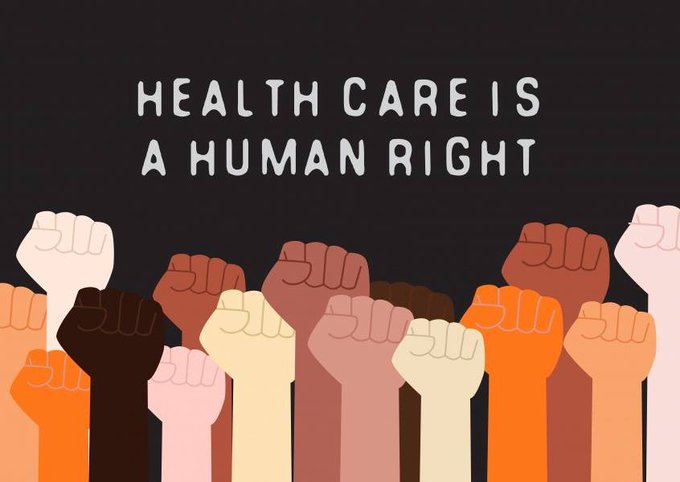Maine Union Members Call for Medicare for All

In this E-Newsletter:
- Maine Union Members Call for Medicare for All
- 1 in 4 Mainers Stop Taking Medication Due to Cost
- Protecting the Healthcare Status Quo is Short-Sighted
MAINE UNION MEMBERS CALL FOR MEDICARE FOR ALL
[caption caption="Joe Mailey of Local S6 discusses healthcare at the WMLC BBQ" align="center"] [/caption]
[/caption]
Medicare for All was a hot topic at this year's Labor Day events as union members told their health care horror stories. Mary Beth Gagne, a visiting pediatric nurse, described how the intense fear and stress parents feel in having a seriously sick child is compounded by a health care system that places profits over patients.
She spoke of a father who stays home to take care of his newborn baby with cancer while all of his vacation pay goes to pay health insurance premiums to cover his child’s chemotherapy drugs. She mentioned the parents of a teenager with lyme disease who were forced to take out a second mortgage to cover the girl’s treatments, only to have the insurance company inexplicably stop covering them and order them to pay back the money it previously paid out to cover the treatments.
“Health care costs are the leading cause of bankruptcy in the US. Medicare for All would allow people not to worry about paying for medical care,” said Mary Beth. “They wouldn’t have to ration their medication and they wouldn’t have to show up at the doctor’s office when they are terminal. They could have comprehensive care, including dental, vision and hearing, all of which are important to a person’s overall well being.”
Joe Mailey, a member of Machinists Local S6, recalled the fear and anxiety he felt after being diagnosed with Type 2 diabetes in 2008. Having been laid off from his job, Joe’s insurance expired a year later and the cost of a monthly supply of blood sugar testing strips was the equivalent to a month of his unemployment checks.
“The health insurance concept that we have failed me, just as it has failed millions of others in this country,” he told the crowd in Lewiston at the Western Maine Labor Council picnic. “This is why I support a health care system where everyone is in and nobody is out.”
Doug Hall of Machinists Local S6 noted that the cost for health insurance at Bath Iron Works ranges from $1200 to $1500 a month for retirees and spouses, which averages out to about $8 an hour or 25 to 30 percent of the workers’ compensation package. He said workers are often hesitant to push for a better contract for fear of losing health insurance if they go out on strike.
“Imagine a world where you have guaranteed healthcare and are not forced to take money from your hourly wages for coverage,” Doug told a crowd at the Central Maine Labor Council’s barbecue in Winslow. “Imagine a world where your decision to retire isn’t postponed by the fact that you or your spouse are too young to be eligible for Medicare.”
1 IN 4 MAINERS STOP TAKING MEDICATION DUE TO COST
More than 1 in 4 Mainers was forced to stop taking their medications in 2016 due to the high cost of prescription drugs, according to a recent study by the AARP. The organization found that between 2012 and 2017, pharmaceutical companies increased prices on drugs to treat cancer, diabetes and heart disease from 40 percent to almost double. It doesn’t have to be this way and we can do better. The graphic below is a perfect illustration of how our health care system compares to the rest of the industrialized world.

PROTECTING HEALTHCARE STATUS QUO IS SHORT-SIGHTED

Writing in the Washington Post last month, Rebecca Kolins Givan of the School of Management and Labor Relations at Rutgers University argues that opposing Medicare for All to protect private insurance is “shortsighted and defensive.” She pointed out that if unions didn’t have to bargain over health insurance, they could focus on higher wages, safer workplaces and more secure retirement plans.
“In recent years, many unions have traded lower retirement contributions and more modest wage gains for their health insurance plans, as health-care costs have steadily risen,” wrote Givan. “With single-payer health care, employers, workers and taxpayers would all ultimately save money, increasing the amount of money available to workers in their wages and retirement benefits.”
